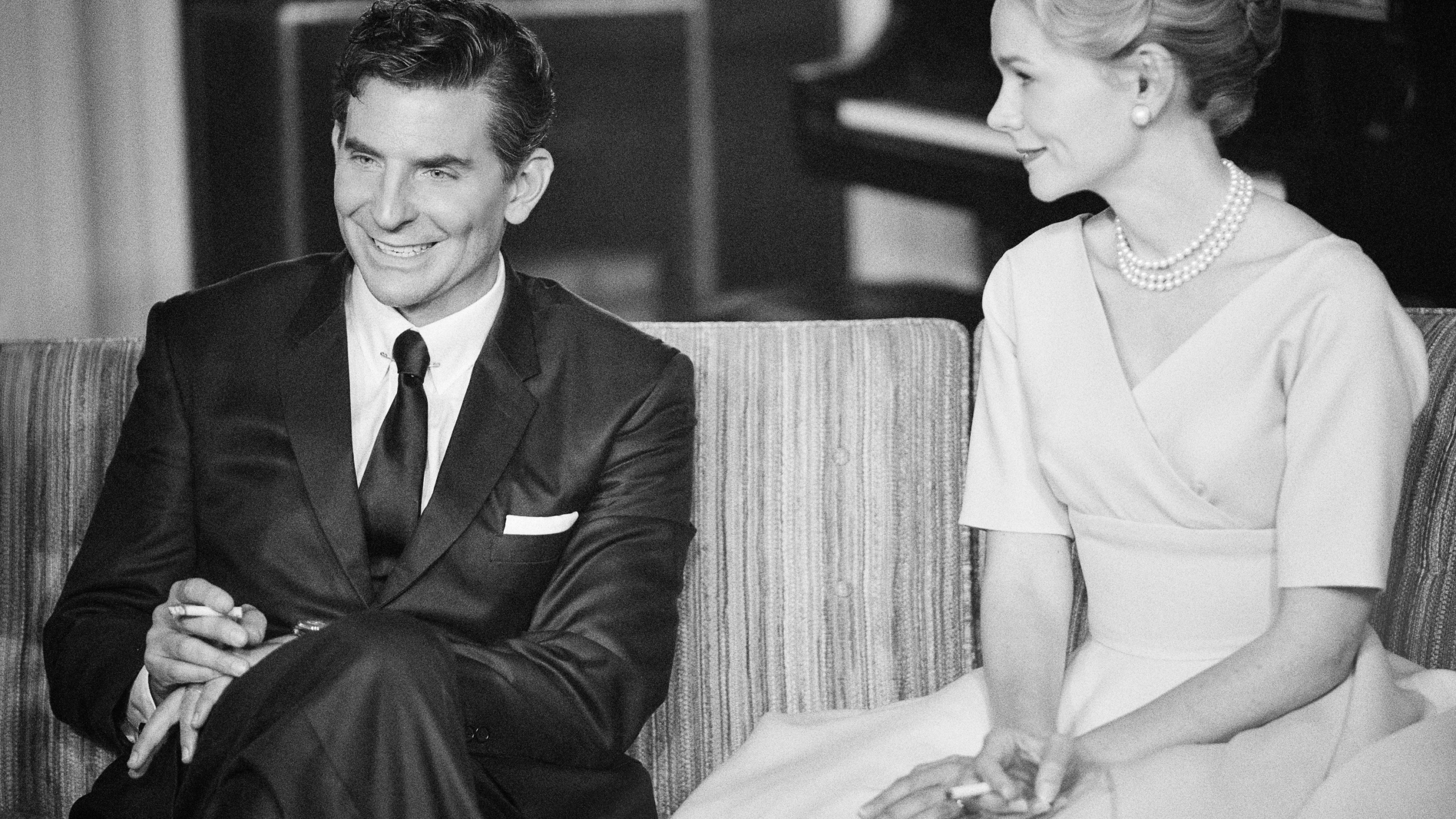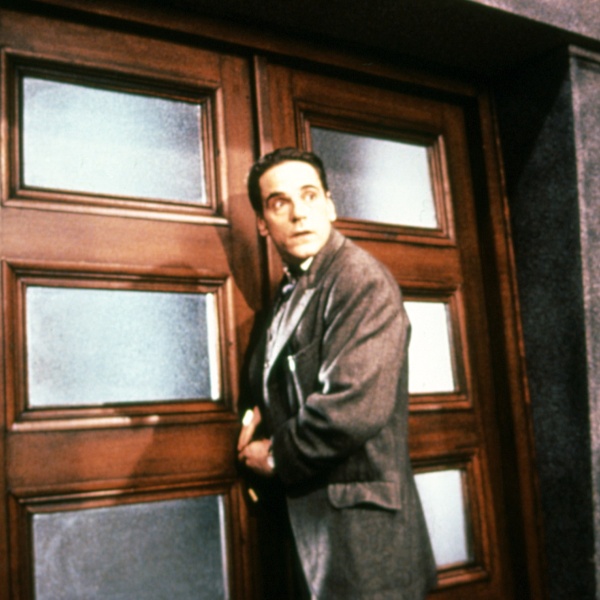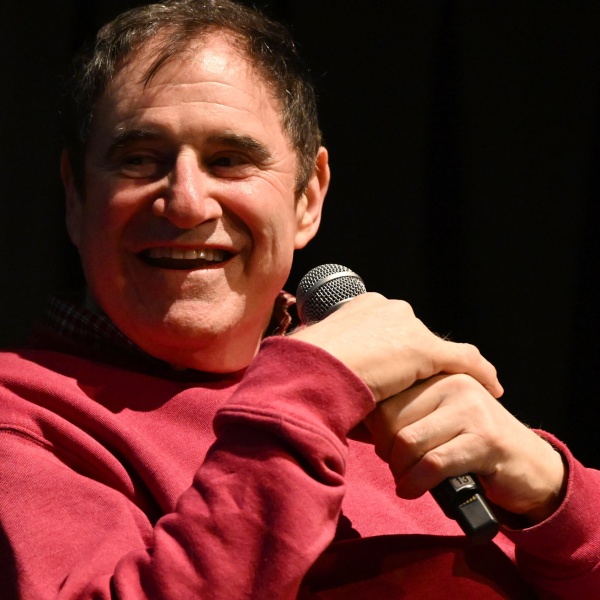Editor’s note: This review was originally published at the 2023 Venice Film Festival. Netflix releases the film in select theaters on Wednesday, November 22; the film will start streaming on Netflix on Wednesday, December 20.
Bradley Cooper exerts and exhausts his soul to not only direct and co-write “Maestro,” about the great composer and New York Philharmonic conductor Leonard Bernstein, but also to star as the complicated musical legend widely known for writing the score for “West Side Story.” Much ado has already been made about the prosthetic nose the gentile second-time feature filmmaker dons to inhabit the specific skin of the Jewish maestro, who died of a heart attack in 1990 at 72. This feat of sculptural makeup effects by artist Kazu Hiro is an unnecessary distraction that never stops reminding you that the person underneath is actually Bradley Cooper, not Bernstein.
Nose aside, “Maestro” is a technical triumph in terms of checking all the boxes of multihyphenate-ism — Cooper funnels himself into the project at every creative level — but this handsomely made Oscar-tailored package actually belongs to another person entirely, and that would be Carey Mulligan, playing Bernstein’s wife of nearly four decades, Felicia Montealegre. She was both the adoring but also the suffering end of a lavender marriage in which she enabled Bernstein to have affairs with an endless train of men (including some of his proteges) as long as he was home on the weekends and didn’t let his sex life impact their three children. To play the sparky Costa Rica-born actress, Mulligan puts on a kind of Transatlantic accent and later a deep, worn-in inner graveliness by the end of her life, cut off by cancer in 1978. Mulligan is wonderful and never overwhelming or overstating in portraying a woman who never set aside her own ambitions for the sake of her husband — even while having to stand by in the wings of his greatness.
As a study of how the Bernsteins’ near-three-decade marriage endured Lenny’s gayness and genius, “Maestro” succeeds off the chemistry between Mulligan and Cooper, but the film often looks and feels too fussed-over, almost too precisely manicured, to ever erase its own parameters as a linear biopic.
That’s nothing against the cinematography of Matthew Libatique, whose opening single take is a beautiful stream of moments and ideas: It begins, in black and white, on a curtain draped across what looks like a stage. But then that curtain opens to reveal it’s actually a window in Leonard’s studio apartment, and there he is, with another man next to him in bed. Cooper almost seems like he’s about to exuberantly burst into song, the start of a movie musical (and that’s also because “Maestro” is entirely scored by out-of-text passages from Bernstein’s recordings, both the canonical and the more obscure). He then flies out the room, down a hall, and then into Lincoln Center’s (today-named) David Geffen Hall in a seamless unbroken sequence that metaphorically and literally bridges the gap between Bernstein’s behind-closed-doors life and his very onstage one as the preeminent American conductor of the 20th century. (What governs the film’s use of a boxy near-Academy ratio, I’m not sure, other than this is the en vogue shooting style of the moment.)

Leonard and Felicia easily fall in with each other after meeting at a party, Mulligan telling Cooper with loaded foreshadowing, “I believe you could break me in two.” Except she never does break over the course of a rocky but platonically loving marriage as recreated in the film, and in fact “Maestro” in moments recalls the dynamic between magnetizing cult leader Philip Seymour Hoffman and his attending wife Amy Adams in Paul Thomas Anderson’s “The Master.” Felicia has a unique hold over Leonard, a loose cannon with sex and drugs and smoking when he’s not buried in his work, even if it’s not intentional or manipulative.
“Fix your hair. You’re getting sloppy,” she tells Leonard after she catches him in the halls of their Upper West Side apartment building, The Dakota, kissing San Francisco clarinet player Tommy Cothran (Gideon Glick). Bernstein’s in his advanced years now, and Cooper’s embodiment is now just a bit bloated and leathery-tan after years of dissipation, but his charm, shining a light that makes you feel like you’re the only person in the room, exceeds his looks in attracting much younger guys.
“Maestro’s” commitment to realistically reviving the significant locations and moments of Bernstein’s life is honorable — including the Dakota apartment, and there’s a splendid shot of Leonard and Felicia quarreling in the living room while Macy’s Day Parade floats pass by the windows flanking them, autumn light pouring in. A “Person to Person” interview from 1955, hosted by Edward R. Murrow, quizzing Leonard’s musical life and his and Felicia’s private one, is almost word-for-word, shot-for-shot recreated. Not to keep going back to the nose already heard around the world, but this faithfulness to Bernstein’s visual story doesn’t stack up neatly against a prosthetic that seems so unrealistic and doesn’t make Cooper look any more like Bernstein.

“Maestro,” wonderfully, however, incorporates Bernstein’s own compositions. There’s a great scene of Leonard clearly coming off an overnight bender with his gays, driving woozily up to his Connecticut summer home as the Sharks vs. Jets prelude from “West Side Story” plays mischievously on the soundtrack. (There are, phew, never any montages of Leonard getting swept up into Hollywood or even recreations of the process of his stage contributions at all.) The soundtrack to “On the Waterfront” and bookending passages from his opera “A Quiet Place” waft in and out of the film. A scene of Bernstein conducting Mahler’s Symphony No. 2, “Resurrection” and totally in the throes of the music in front of him, Cooper also seeming to lose himself in the moment too, is pretty magical.
In that scene, Felicia watches on, wearily applauding one more time. “You will die a lonely old queen,” she tells her husband at one point, also eviscerating him for wanting “to be sleepless and depressed” for the sake of inspiration. Mulligan sells a moment in Connecticut that feels cinematically manufactured: Leonard announces to his family (including his daughter Jamie, played by Maya Hawke) he’s finished yet another Great Opus, and a suffocated Felicia, fully dressed, walks straight into the pool, sitting at the bottom of it in search of catharsis. Who does this?
Missing from the movie entirely is Bernstein’s political life as a liberal supporter of causes — and anything to do with Tom Wolfe’s “Radical Chic” New Yorker essay lampooning a limousine-liberal-packed party Bernstein held at his UWS home touting the Black Panthers in 1970. But behind its omissions, its contrivances, and Cooper’s straining for greatness that doesn’t always hit every note, “Maestro” is really Mulligan’s movie: She’s heartbreaking in the final stretches of Felicia’s life, dying but fighting not to give up, and there’s a great scene where she tells Hawke’s character why she shouldn’t walk away from the table angry after Felicia covering up her father’s mess finally pisses her daughter off over lunch. It’s one of Mulligan’s very best performances, one that feels effortless in conveying so much with great restraint and without overthinking it. If only the rest of “Maestro” followed her lead.
Grade: B-
“Maestro” world premiered at the Venice Film Festival. Netflix will open the film in theaters on Wednesday, November 22 before it streams globally on Wednesday, December 20.





